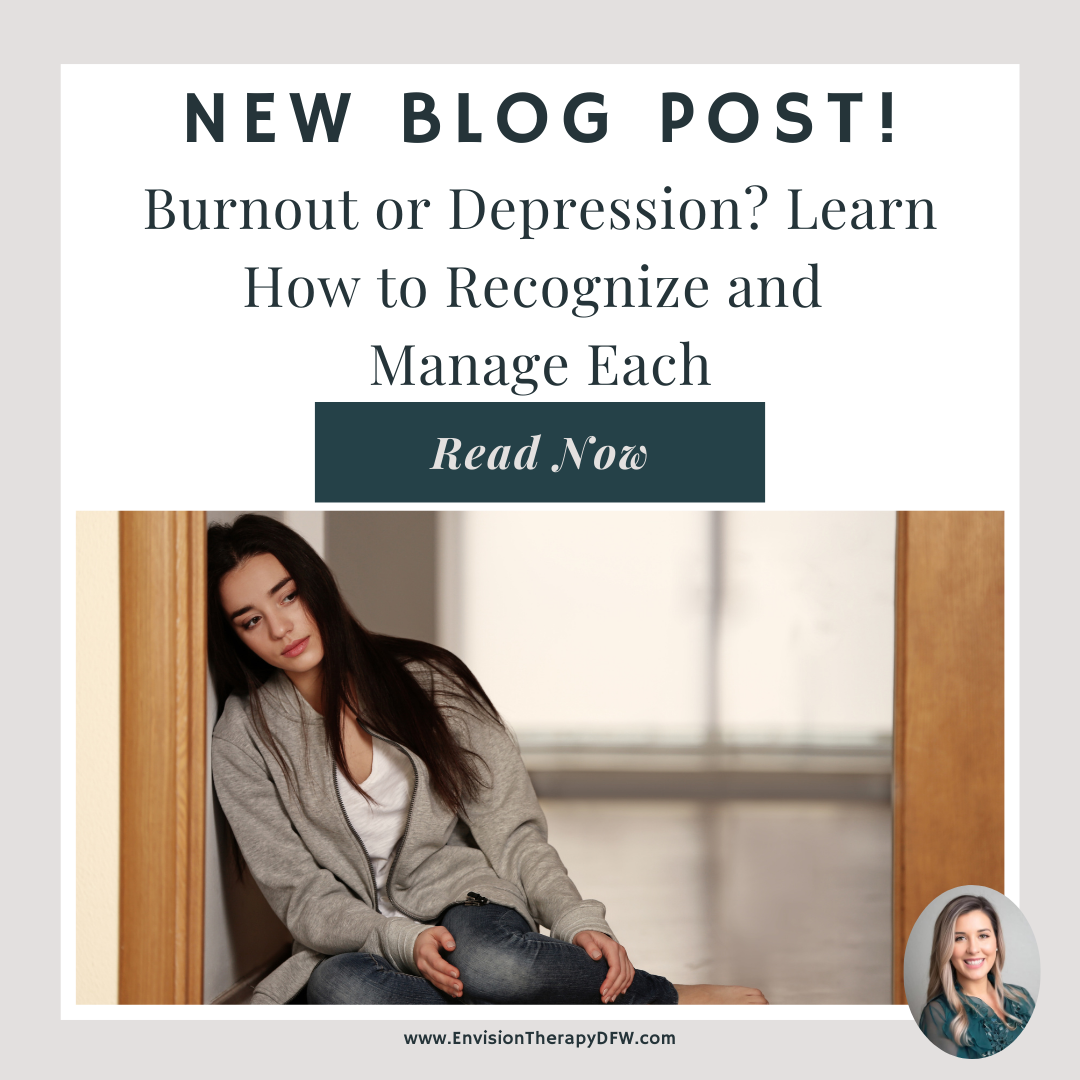It’s all too common to feel mentally and physically drained. Whether it’s because of demanding jobs, personal responsibilities, or a constant state of high alert, many people experience what seems like a never-ending struggle with exhaustion and negativity. Yet, not all forms of exhaustion are created equal. Two of the most common culprits are burnout and depression, and while they may seem similar, understanding their differences is crucial to addressing them effectively.
What is Burnout?
Burnout is a state of emotional, physical, and mental exhaustion brought on by prolonged exposure to excessive stress. It’s most commonly associated with work or caregiving roles, but it can occur in any area of life where demands become overwhelming. You may feel drained, detached, or like you’re just going through the motions.
Common Symptoms of Burnout:
- Physical Exhaustion: You’re always tired, even after a full night’s sleep.
- Cynicism and Detachment: You feel emotionally distanced from your work or responsibilities.
- Reduced Productivity: Tasks that used to be easy now feel insurmountable.
- Irritability and Frustration: Little things can set you off, and you feel on edge.
- Lack of Motivation: Getting started on anything feels like an enormous effort.
What Causes Burnout?
Burnout is typically caused by ongoing stressors in a specific area, like work or caregiving. Common causes include:
- Long Working Hours: When work takes over your life, the balance you need for well-being is compromised.
- Lack of Control: Feeling like you have no say in decisions that affect your job or responsibilities.
- Monotony or Overwhelm: Repetitive, uninspired work or an unmanageable workload can push you to your breaking point.
- Lack of Support: When you feel alone in your struggles, the stress becomes even more difficult to manage.
What is Depression?
Depression, on the other hand, is a clinical mental health disorder that goes far beyond typical sadness or fatigue. It’s a pervasive condition that can significantly impact all areas of your life, making it hard to enjoy anything or even get out of bed.
Common Symptoms of Depression:
- Persistent Sadness: Feeling down or hopeless for weeks or months on end.
- Loss of Interest: Activities you once loved bring you no joy.
- Changes in Appetite or Weight: You’re eating too much or too little, and your weight fluctuates as a result.
- Sleep Disturbances: Either sleeping excessively or struggling with insomnia.
- Feelings of Worthlessness: You constantly feel like you’re not good enough or that you’ve failed.
- Cognitive Difficulties: It’s hard to concentrate or make decisions.
- Thoughts of Death or Suicide: In severe cases, depression can lead to suicidal ideation.
What Causes Depression?
Depression can have multiple causes, including:
- Genetics: A family history of depression increases your risk.
- Brain Chemistry: Chemical imbalances in the brain can contribute.
- Trauma or Stress: Past experiences, trauma, or chronic stress can trigger depression.
- Chronic Illness: Conditions like diabetes or heart disease can contribute to feelings of depression.
Burnout vs. Depression: Key Differences
While burnout and depression can share similar symptoms, such as exhaustion and a sense of hopelessness, they are fundamentally different conditions. Here are some key distinctions:
- Scope and Impact:
- Burnout: Primarily related to work or a specific area of life, like caregiving. If you change the environment or reduce the stressors, you may start to feel better relatively quickly.
- Depression: Affects every aspect of life, from your relationships to your physical health. Changing your environment often doesn’t relieve the symptoms.
2. Emotional Tone:
- Burnout: You might feel frustrated, irritable, or detached. There’s a sense of being overwhelmed but not necessarily a deep feeling of sadness.
- Depression: Characterized by deep, persistent sadness, a sense of worthlessness, and a lack of enjoyment in life.
3. Reversibility:
- Burnout: Often improves with rest, self-care, or by removing the source of stress. Addressing work-life balance or setting boundaries can be helpful.
- Depression: Usually requires professional intervention, such as therapy or medication. It’s not something you can simply “snap out of” by taking a vacation.
Can Burnout Lead to Depression?
Yes, burnout can be a precursor to depression if left unaddressed. The chronic stress and emotional depletion associated with burnout can spiral into the more pervasive feelings of hopelessness and worthlessness seen in depression. This is why it’s crucial to recognize and address burnout early on.
How to Address Burnout and Depression
If you’re dealing with burnout, consider the following strategies:
- Set Boundaries: Learn to say no and prioritize your well-being.
- Take Breaks: Give yourself permission to rest and recover.
- Practice Self-Care: Engage in activities that bring you joy and relaxation.
- Seek Support: Talk to friends, family, or a therapist to help manage stress.
For depression, a more comprehensive approach is usually needed:
- Consult a Professional: Therapy, such as cognitive-behavioral therapy (CBT), can be highly effective.
- Medication: Antidepressants may be prescribed to help balance brain chemistry. Talk to your doctor to see if this might be a good fit for you.
- Lifestyle Changes: Regular exercise, a balanced diet, and good sleep hygiene can support recovery.
- Support Network: Lean on loved ones and communicate openly about how you’re feeling.
Both burnout and depression are serious and require attention. While burnout can often be alleviated by changing your circumstances, depression typically requires a more in-depth, long-term approach. If you’re feeling overwhelmed, don’t hesitate to seek professional help. Mental health is just as important as physical health, and addressing your needs early can make a significant difference.
Remember, it’s okay to ask for help. Whether you’re feeling burned out, depressed, or a combination of both, there are people and resources available to support you. Your well-being is worth it. If you are ready to start therapy, reach out today.

